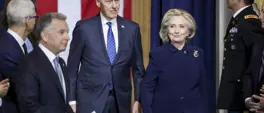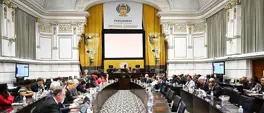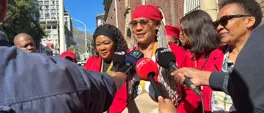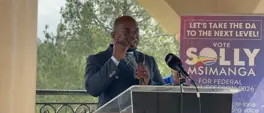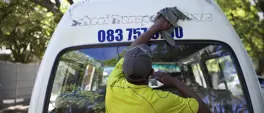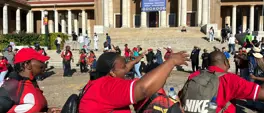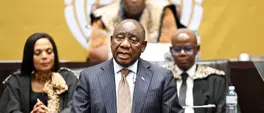Perfecting the political funding arena still a work in progress - IEC
Lindsay Dentlinger
14 August 2025 | 4:30Addressing the concerns of civil society and political parties in Cape Town on Wednesday, the commission said it was for Parliament to grapple with these matters.
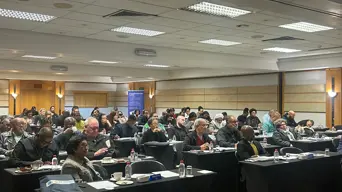
The IEC engaged stakeholders in Cape Town on 13 August 2025 in preparation for the 2026 local government elections. Picture: Lindsay Dentlinger/EWN
CAPE TOWN - The Electoral Commission said perfecting the political funding arena was still a work in progress.
But it would not be drawn on whether the recently raised limits for declaring private donations were sufficient.
Addressing the concerns of civil society and political parties in Cape Town on Wednesday, the commission said it was for Parliament to grapple with these matters.
Newly proposed regulations from Parliament raising the private donation limit to R30 million a year and the declaration threshold to R200,000 are yet to be promulgated by the president.
Responding to concerns that political parties are advising donors to donate in smaller amounts so as to avoid having to declare it to the IEC, the commission said there was nowhere to hide and all funding eventually had to be accounted for in the annual financial statements of parties.
The commission’s George Mahlangu said that government funding to represented political parties was also strictly monitored.
"The law is clear: section seven of the act provides on how these funds can be utilised, that’s why the books of the political parties have to be audited by independent auditors."
He said that the Multi-Party Democracy Fund, from which all political parties can benefit, had, however, not been as successful as the commission had hoped.
Only around R45 million had been raised over the past four years.
"We were so optimistic that this would do well, but to our surprise and disappointment, it doesn’t receive the contributions that we expect."
Mahlangu said that represented political parties were being sanctioned for not complying with declaring their spending.
Get the whole picture 💡
Take a look at the topic timeline for all related articles.
Trending News
More in Politics
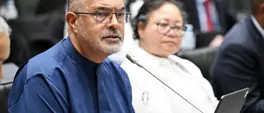
27 February 2026 18:30
SARS eyes R500 billion windfall: Kieswetter calls for more resources to close tax gap

27 February 2026 16:05
EFF labels Paul O'Sullivan a 'fugitive', files criminal complaint after committee exit
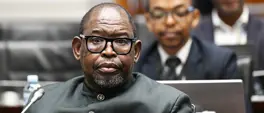
27 February 2026 14:15
Treasury rejects calls to scrap B-BBEE amid GNU friction over economic growth
